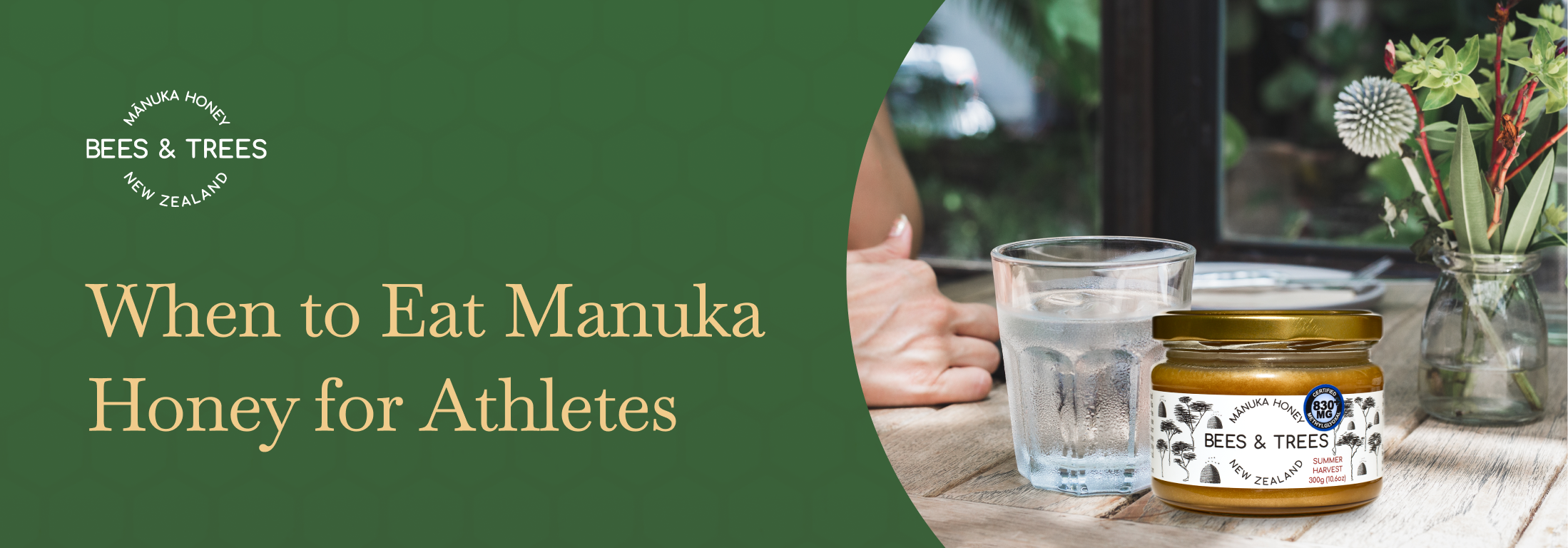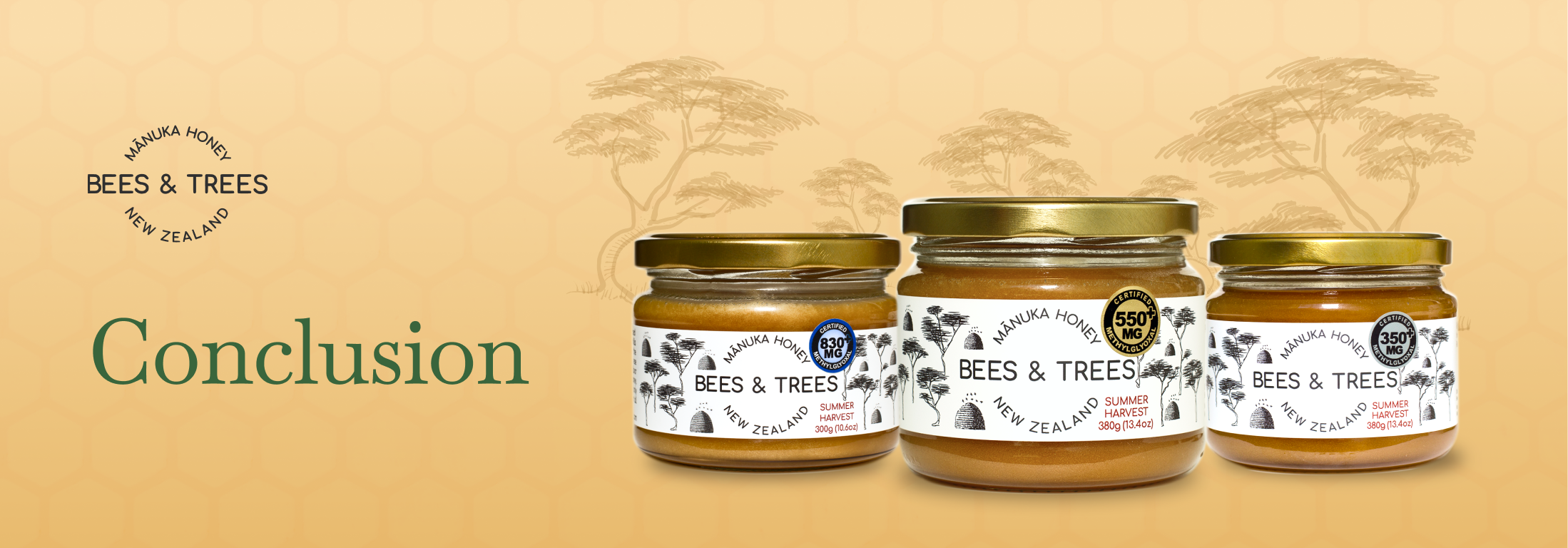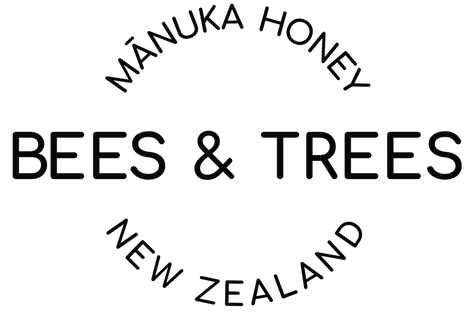Honey is a great natural energy source for endurance athletes, gym enthusiasts, and anyone who plays a sport. It is made of unrefined sugars like fructose and glucose, which are easily absorbed by the body, and its use dates back to the 12th century when it was used by Olympic runners in ancient Greece.[1]
Honey is made of organic compounds (natural sugars (80%), water (18%), protein (2%), minerals, vitamins, and pollen. [2]) which have no adverse effects on the body. This makes it a great alternative to synthetic supplements, which can be damaging to the human body with prolonged use.
“Does manuka honey give you energy? Is Manuka honey energy real?” Learn more about the benefits of Manuka honey as an energy supplement and how you can incorporate it into your routine.
Honey and Athletic Performance

According to a study by the University of Memphis Exercise and Sports Nutrition Laboratory, honey is one of the best carbohydrates to eat before exercise. [1]
One teaspoon of honey contains about 7 grams of carbohydrates, primarily glucose & fructose, which are used to make a lot of commercial energy enhancers. Unlike these products, honey is a natural product. It doesn’t contain any artificial sweeteners, preservatives, and colors often found in commercial energy enhancers.
The National Honey Board presented findings from three clinical trials exploring honey as a carbohydrate source for athletes. The research, conducted at the University of Memphis Exercise and Sport Nutrition Laboratory, compared honey to other commonly used carbohydrates by athletes.
Dr. Richard Kreider, who led the studies, noted that honey performed as well or even better in several categories. The initial trial showed that honey caused only slight increases in blood sugar and insulin levels, proving superior to dextrose and maltodextrin, and equivalent to a well-known commercial carbohydrate gel. This suggests that honey could be an efficient pre-exercise energy source without risking hypoglycemia.
Another trial found that, after intensive exercise, a honey-sweetened protein shake was the only drink that maintained blood sugar levels for two hours post-exercise. A separate trial with competitive cyclists revealed that honey significantly enhanced power and speed compared to a placebo and matched the performance of dextrose. Dr. Kreider concluded that honey can boost endurance exercise capacity.
Overall, these findings highlight honey's potential as a low-glycemic, energy-producing carbohydrate choice for athletes. The research, supported by the National Honey Board and in association with IMAGINutrition, offers promising insights for those seeking natural energy solutions. [3]
Honey improves endurance exercise capacity, which may be attributed to its ability to release sugar into the blood slower than pure glucose. Additionally, it takes longer to digest honey, which means the energy from honey is slowly absorbed into the body, hence boosting performance for a longer time.
According to a study on the effect of honey supplementation on exercise, “Compared with other forms of carbohydrate, honey ingestion has had a similar effect on exercise performance, perceptions of fatigue, blood glucose concentrations, and immunological responses when consumed immediately prior to and/or during exercise, although some positive influence has been observed. When routinely consumed over multiple weeks, honey may attenuate many of the immune perturbations typically associated with a program of moderate-to-intense exercise.” [4]
Does Manuka Honey Give You Energy?

Manuka honey, just like other types of honey, is a shot of pure energy! It is mostly made of sugars like glucose and fructose, which help deliver short-term and long-term energy. Glucose is absorbed faster into the body and caters to short-term energy needs, while fructose is more long-term as it has a prolonged effect on sugar levels. As a result, consuming Manuka honey gives you a more sustained energy boost without the crash.
Benefits of Manuka honey as a sports fuel

Manuka honey offers all-round benefits as a sports fuel due to its rich composition. All the additional benefits align with fitness and might help you achieve your health goals compared to other energy supplements.
-
Gut regulation: A healthy gut is critical for normal body functions and is integral to sports performance. Manuka honey has powerful antimicrobial properties that can help improve your gut function.
-
Anti-inflammatory properties: Manuka honey has multiple essential amino acids, which are good for reducing inflammation. This can help with muscle recovery and repair, especially after intense workouts and competitions.
-
Minerals and vitamins: Manuka honey is made up of a variety of minerals and vitamins like calcium, magnesium, zinc, copper, potassium, B, C, and K vitamins. These compounds are absolutely essential for athletic performance.
According to a study done at Oregon State University, athletes who lack B vitamins might perform worse during high-intensity exercise and show a decreased ability to repair and build muscle [5]. Manuka honey has multiple B vitamins and other minerals, which can help in the recovery process and help with performance. [6]
When to Eat Manuka Honey for Athletes

According to scientific studies, raw honey is a great way to restore depleted glycogen levels in athletes [7]. As a pre-workout snack, consume Manuka honey about 30 minutes before exercise. This will give your body enough time to synthesize and absorb the energy.
As a post-workout snack, consume 2-3 teaspoons of raw Manuka honey mixed in water after competing or finishing a training session. This will give your body about 20 grams of simple carbohydrates for the body.
There is no right or wrong way to consume Manuka honey for maximum benefits. Some of our favorites include:
-
Adding a tablespoon of Manuka honey to your smoothie.
-
Spreading Manuka honey on toast for a quick pre-workout snack.
-
Making a Manuka honey-lemon tea.
-
Making a post-workout recovery fruit bowl with Manuka honey.
Conclusion

Manuka honey is a great natural energy boost for pre-workout, endurance sports, and post-workout recovery aid. It is also an inexpensive substitute for commercial energy enhancers with extra health and wellness benefits.
Manuka honey is a natural product with no known side effects; hence, it may be worth considering and incorporating into your exercise routine. If you want good quality Manuka honey to try, we recommend either our 350+ MG or 550+ MG Manuka honey as a starting point.
Bees & Trees honey is crafted by a small team of dedicated apiarists in New Zealand’s Taranaki Region who are dedicated to offering the most delicious and pure Manuka honey available in the world. To explore more about how Manuka honey can help combat bacterial infections and enhance overall health, read about its antibacterial properties.
FAQs
1. How should you use Manuka honey for energy?
Use Manuka honey just like you would any other energy enhancer. It takes almost the same amount of time to reach your muscles after consuming, just like a sports gel – roughly 15 minutes.
2. How much Manuka honey should runners consume for energy?
A lot of runners require 30-60g of carbs per hour to keep their glycogen levels up. So, if a tablespoon of honey contains 17g of carbs, you would need 2-3 tablespoons every hour for enough fuel.
References:
-
Honey: The Facts https://www.runnersworld.com/uk/nutrition/a765285/honey-the-facts/
-
Honey for nutrition and health: a review https://pubmed.ncbi.nlm.nih.gov/19155427/
-
Boost athletic performance with honey https://www.foodnavigator.com/Article/2001/09/25/Boost-athletic-performance-with-honey
-
Honey Supplementation and Exercise: A Systematic Review - PMC https://www.ncbi.nlm.nih.gov/pmc/articles/PMC6683082/
-
Poor Athletic Performance Linked To Vitamin Deficiency | ScienceDaily https://www.sciencedaily.com/releases/2006/11/061116091853.htm
-
Nutraceutical values of natural honey and its contribution to human health and wealth - PMC https://www.ncbi.nlm.nih.gov/pmc/articles/PMC3583289/







